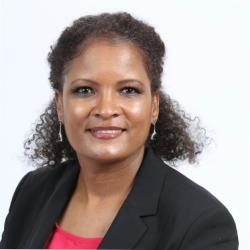WSIS Action Line C4: Capacity development in emergency telecommunications: Building resilience through digital skills
ITU
Session 329
In recent years, the climate crisis has heightened vulnerabilities to disasters and has underscored the critical need for robust emergency response mechanisms, frameworks, and strategies at the global level. The rapid development of digital technologies has prompted Governments around the world to strengthen their connectivity and resilience by leveraging ICT and space technologies for disaster prevention, monitoring, early warning, and relief efforts.
Addressing emergencies, whether natural or human-induced, demands a comprehensive approach that integrates advanced digital technologies and the development of skills required to using those technologies effectively. These skills can be crucial, for instance, in identifying the necessary data (i.e. remote sensing data, thematic data and historical data), processing that data, analysing, and visualising it. In addition, they can help understand how risk information can be used to select emergency response measures and utilise ICT tools and applications for community-based preparedness planning, alerting, and evacuating, as well as for the establishment of an early warning system and impact-based forecasting.
The International Telecommunication Union (ITU) is committed to building the capacities of member States in mainstreaming emergency response in their National Emergency Telecommunications Plans (NETP). In emergency contexts, when response teams on the ground are no longer able to communicate or take proper action, ITU has been deploying equipment, satellite phones and routers that response teams can utilise to effectively execute their rescue and relief plans. Alongside the deployment of ICT infrastructure, ITU provides tailored capacity development interventions to ensure that policymakers and practitioners are equipped with the necessary digital skills to operate the equipment deployed, and thus improve the speed, quality and effectiveness of their emergency response mechanisms.
In line with these efforts, the ITU Capacity and Digital Skills Development (CSD) and Environment and Emergency Telecommunications (EET) divisions are co-organising a session on “Capacity development in emergency telecommunications: Building resilience through digital skills”. This panel session aims to delve into the intersection of digital skills and emergency telecommunications, exploring strategies to enhance resilience and response capabilities in the face of disasters.
The session will foster dialogue among stakeholders to identify actionable strategies to enhance emergency response capacity through digital skills development. Panelists will share insights and best practices on building resilient ICT infrastructure and communities capable of effectively responding to emergencies in an increasingly digital world. The following questions will be discussed:
- What is the role of policymakers in leveraging the potential of digital skills to strengthen the emergency responsiveness of their ecosystems (institutions, society, community, etc)?
- How can the private sector and academic institutions partner with Governments to develop digital capacities for emergency response at national and local levels?
- How does effective digital skills development contribute to bridging the knowledge and skills gap between technical (practitioners) and non-technical staff (communities)?
- What are some of the best practices to ensuring inclusive capacity development interventions and equipping communities (even the most underserved ones) with the necessary digital skills and capabilities to proactively participate in emergency response and disaster relief plans?
- How can the international community best support those efforts?

Eng. Leonard Jukwa is an electronics and telecommunications engineer by qualification and profession, with a diverse experience of nearly 20 years in the electronics, telecommunications, automation, and control systems engineering fields. As a Chief Systems Engineer and Personal Advisor to the Permanent Secretary in the Ministry of ICT, Postal and Courier Services of Zimbabwe, and ITU focal point in the Ministry, he is currently leading the ICT for Disaster Management (ICT4DM) and National Emergency Telecommunication Plan (NETP) initiatives in Zimbabwe. Mr Jukwa is also an IoT specialist, a systems design engineer, a metrology specialist, and also an experienced projects engineer/manager.

Mariela Machado has nearly two decades of experience building, deploying, and scaling international humanitarian programs at the intersection of technology, social/environmental impact and public policy in the private sector, public sector and academia. As the Senior Director of Humanitarian Technology and Tech4good at the Institute of Electrical and Electronics Engineers (IEEE), Mariela leads this group that manages a consortium of programs across the Institute working to leverage the power of technology to solve the world's greatest challenges to improve social, economic and environmental impact worldwide. Prior to IEEE, she was the Director of Programs at Newlab, a social innovation hub focused on scaling transformative technologies through public-private partnerships and led the expansion to the Newlab hub in LATAM based in Uruguay. Before that, she served as Senior Program Manager at the American Society of Mechanical Engineer (ASME) & Engineering for Change. Mariela holds a MSc in Information and Communication Technologies specialized in Artificial Intelligence and a MPA in Sustainable Development from Columbia University.

Giacomo Mazzone has 30 years of experience in the information, sport and international relations sectors. He was trained as a journalist, with a great deal of experience in international companies and organizations (RAI, Euronews, Eurosport, and latest EBU). He also has worked for all traditional media (press, radio, general interest TV) but also new media (all-news channels, Internet portals). In 2021, he acted as the Global project manager for UNDRR, following the development of the project UNDRR-WBU to train media professionals on Disaster Risk Reduction in countries affected by Climate Change.

Ms. Halima Letamo currently works as a Senior Capacity and Skills Development Officer for the International Telecommunications Union (ITU). She works for the Capacity and Digital Skills Division which is responsible for ITU’s training interventions and capacity development support to the ITU membership. She holds a master of Business Administration and a Master of Education as well as 20 years work experience in capacity development, spread across service in the Botswana Government, UNESCO, Botswana Training Regulator, Botswana Telecommunications Corporation and ITU. Her international service includes chairing the programme for development and training of the Commonwealth Telecommunications Organisation and serving in the organisations governing board. She is a change management practitioner and holds other professional qualifications such as Project Management, Balanced Score Card, Targeted Selection, Human Rights Based Approach to Programming and Implementation of Quality Management Systems.
-
 C4. Capacity building
C4. Capacity building
-
 Goal 4: Ensure inclusive and equitable quality education and promote lifelong learning opportunities for all
Goal 4: Ensure inclusive and equitable quality education and promote lifelong learning opportunities for all
-
 Goal 9: Build resilient infrastructure, promote sustainable industrialization and foster innovation
Goal 9: Build resilient infrastructure, promote sustainable industrialization and foster innovation